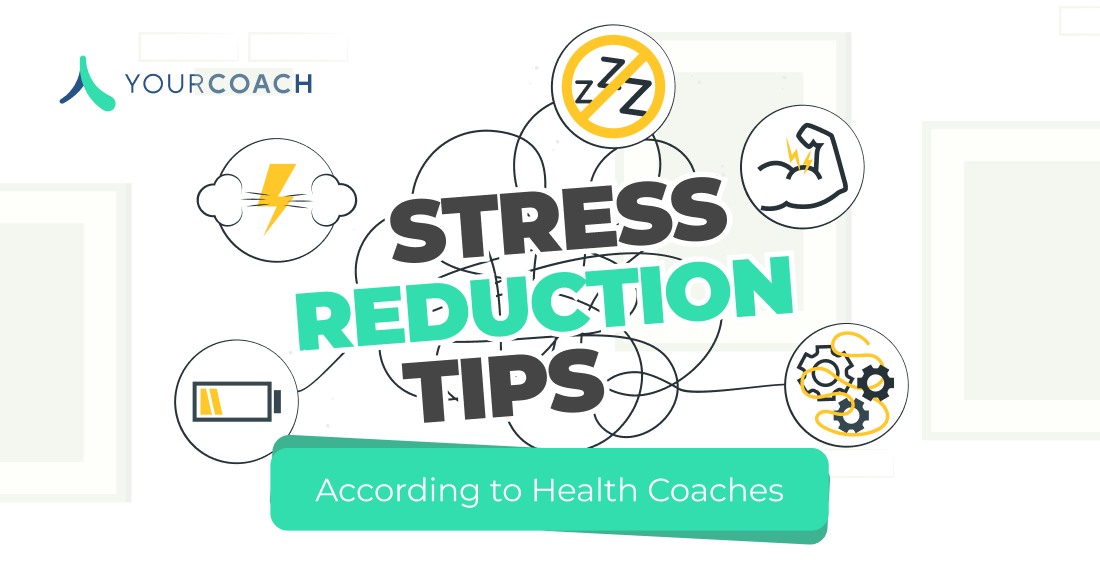
APA survey data recently showcased that Americans are more stressed now than during the pandemic. Not only that, but the study also indicated that the long-term stress sustained since COVID-19 has contributed to an increase in chronic illnesses, up a whole ten percentage points from 48% to 58% among adults ages 35-44.
At first glance, it might seem shocking to hear we’re more stressed now than we were during a global pandemic. But in actuality, the impact of stress seems to be compounded and circumstances both in and outside the workplace—from geopolitical conflict to new return to work norms—are having a lasting impact on how we experience stress in the short- and long-term.
Unsurprisingly, employees very much care whether their employer values their overall health and wellbeing. In fact, APA data also showed that 92% of workers said it’s very (57%) or somewhat (35%) important to them to work for an organization that values their emotional and psychological wellbeing and the same 92% said it’s very (52%) or somewhat (40%) important to them to work for an organization that provides support for employee mental health.
The absolute best way employers can show up for employees, reducing their stress levels and helping them better manage stressful situations as they arise, is to offer supplemental mental health support in the form of health coaching as part of their employee health benefits. We’re proud to partner with progressive employers to deliver health coaching services to their employees, providing non-clinical supplemental mental health support in large part by helping them to manage ongoing effects of stress. In today’s blog, we walk through a few of the many ways health coaches partner with employees to reduce their stress and improve long-term health outcomes.
Cultivate and practice regular stress management techniques.
Strategies like meditation, mindfulness and breath work can be exceptionally helpful in reducing stress during the workday and outside of work. In multiple studies, mindfulness-based stress reduction has proven especially effective among patients suffering from chronic conditions, helping them cope better with their clinical problems. It’s also shown improvement to anxiety and depression symptoms and has reduced chronic pain and stress reactivity.
You might often hear that meditation and mindfulness are a practice and, well, that’s exactly right. Just like any other important lifelong skill, these techniques must be taught, cultivated and maintained. Health coaches support every step in this process, arming individuals with the tools they need to incorporate these skills into daily life; helping them recognize when they need to tap into them; and holding them accountable for utilizing these techniques when they need them the most.
Create and enforce boundaries.
Survey data has shown that around 47% of U.S. workers are concerned about work-life boundaries. Indeed as we continue to emerge from the pandemic and readjust to new ways of working—whether that’s a fully in-office schedule, a hybrid schedule, or for some, fully remote work—these boundaries become less and less clear. Some studies have even gone so far as to demonstrate that these blurred work-life boundaries lead to negative outcomes, such as decreased happiness and increased emotional exhaustion. It’s not hard to imagine why this is the case. The less clear our boundaries are between our work and home lives, the harder it is to turn off our brains when it’s no longer time to think about work. And the more stressed we feel.
Health coaches help clarify these boundaries, helping individuals identify and adhere to a clearer schedule and create space between work and personal activities. Not only will this help reduce stress levels, but creating these distinctions might also help employees experience greater productivity in the workplace and make them feel better about coming to work every day.
Optimize sleep schedule, nutrition and physical fitness.
While we might not be able to control the source of stress in our lives, we can make sure we’re in the right state to face stress head-on and utilize some of the coping tools health coaches provide. Making sure we’re well-rested, well-fed and well-exercised, can massively affect the ways we deal with stress. High levels of stress impair our sleep but also sleep loss triggers our bodies stress response system. Stress and eating behaviors are also deeply linked.
Health coaches work closely with us to audit our lifestyle and have honest conversations about what needs to change. They’ll work alongside us, without judgment, to implement behavioral modifications that fundamentally change our daily habits, transforming them from stress inducing to stress reducing.
Health coaches are fundamentally necessary for a workforce that’s truly healthier, happier, more productive, more present and less stressed. If you’re an organization that’s interested in partnering with us to deliver health coaching services to your workforce send us a note at team@yourcoach.health.


